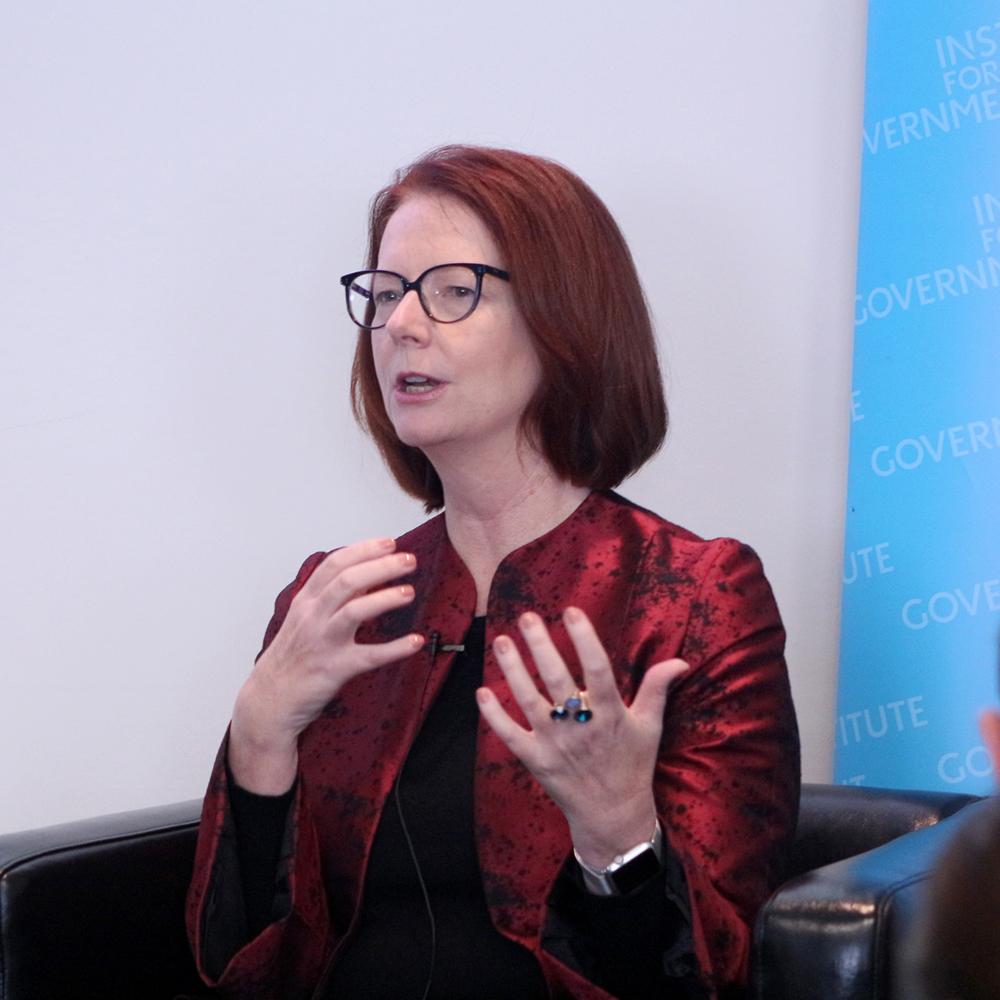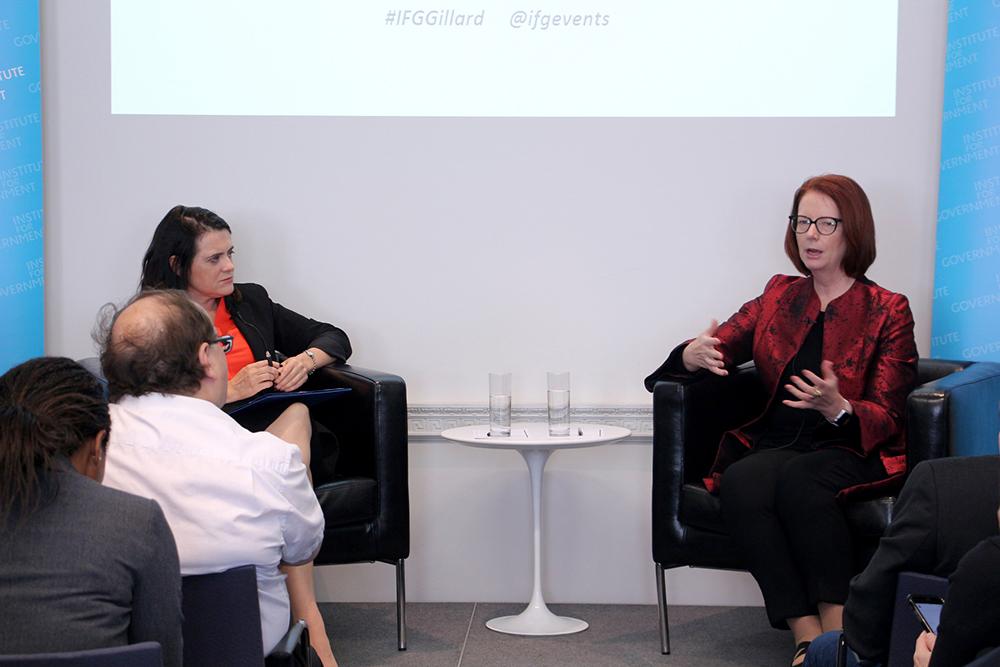Governing the modern democracy: in conversation with Julia Gillard
Chris Wajzer says politicians of both genders have much to learn from Julia Gillard
Immigration, gender, Brexit, Trump, and the inevitability of an Australian republic – these were just a handful of the issues explored in last week’s event with former Australian Prime Minister Julia Gillard. Chris Wajzer says politicians of both genders have much to learn from her.
In an Institute for Government first, Julia Gillard – the first woman to serve as Australia’s Prime Minister – spoke to a riveted audience about the challenges of being a woman in power and the trials and tribulations of running a modern democracy. 
The gender of governing
In a note of caution to Theresa May, Gillard said that over time, the gender issue became the ‘go-to’ political weapon of choice for her adversaries, with the attacks centring on her lack of children and apparent ‘ruthlessness’. She said the tone of the attacks reflected the prevailing negative stereotypes of female leaders – that women leaders are seen as having abandoned the soft, nurturing traits of femaleness – and felt strongly that these ‘unconscious biases’ were playing into the current U.S. presidential election.
Echoing her misogyny speech that brought her worldwide attention in 2012, Gillard said that the focus should not be on how individual women in power can act differently to men in power, but on the collective response of society. She added that influential male leaders in particular have a role in ‘calling-out’ sexism, noting that this would have made a huge difference during her time as Prime Minister.
The media cycle versus the rhythm of governing
Technology, Gillard believes, has changed the way the media engages in political debate, altering the ‘rhythm of governing’. She pointed to the inability of leaders ‘to get the facts through, highlighting the examples of Brexit and the shocking number of people who still believe President Obama was born in Kenya.
In an exceedingly fragmented media landscape, Gillard underlined how easy it is for people to end up in ‘self-reinforcing bubbles’ that ‘never get anywhere’. This is despite the fact that, as IfG research shows, people want politicians to make decisions based on objective evidence. Reform, she said, however, requires sustained attention over a long period of time, allowing people to accept the need for change.
But the insatiability of the media and the pace of the 24-hour news cycle mean it is difficult for leaders to sustain such attention. The former Prime Minister gave an example of making a major policy statement over breakfast, but then facing press calls for new stories by lunch.
Identity politics and the left behind
Donald Trump, Brexit, and the rise of the far left and far right in Europe, reflect the growing backlash against globalisation. While globalisation may be driving growth globally, many people have been left out, left behind and wondering what’s in it for them. This makes for a complex and challenging backdrop for modern leaders.
Reflecting on the increasing malaise, Gillard gave the example of an ageing manufacturing worker who, over the course of the past 50 years, would have witnessed first-hand the disruptive change of globalisation.
Asked whether there were any specific policy interventions to address these issues, Gillard said that if she knew that she would have already written the ‘global bestseller’. But she added that modern leaders needed to speak to identity politics, diversity and fears about change. This means going beyond the standard mind-set of ‘programmes and interventions’.
Echoing the current post-Brexit sentiment in the UK, Gillard said that in a globalised world these conversations would need to translate into an inclusive narrative about a nation and people within that nation, but also encourage its people to look outwards.
The former Prime Minister painted a picture of unprecedented challenges to governing in the 21st century, fuelled by a voracious and fragmented media and widespread backlash against globalisation and migration.
While the ghosts of Prime Ministers past may quietly disagree, the ‘quarrelsome, noisy, quick, democracies of today’ present challenges that have not been seen by any previous generation of democratic leader. If the present upheaval and pace of change are anything to go by, the rhythm and backdrop of governing is likely to continue to hasten and fracture. All political leaders can listen and learn from the experience of Julia Gillard who, we suspect, will never be far from the political arena.
- Keywords
- Foreign affairs
- Publisher
- Institute for Government
